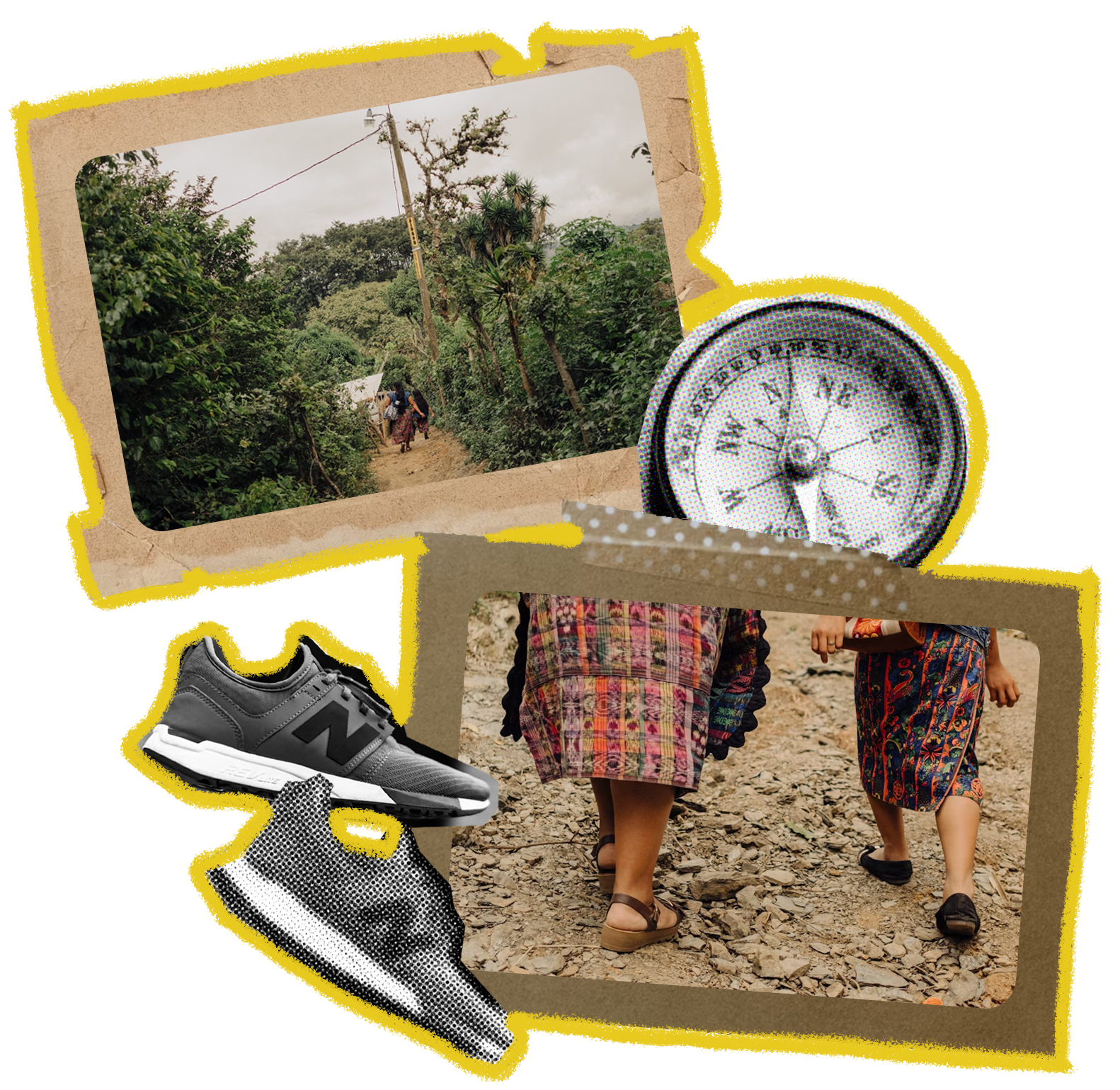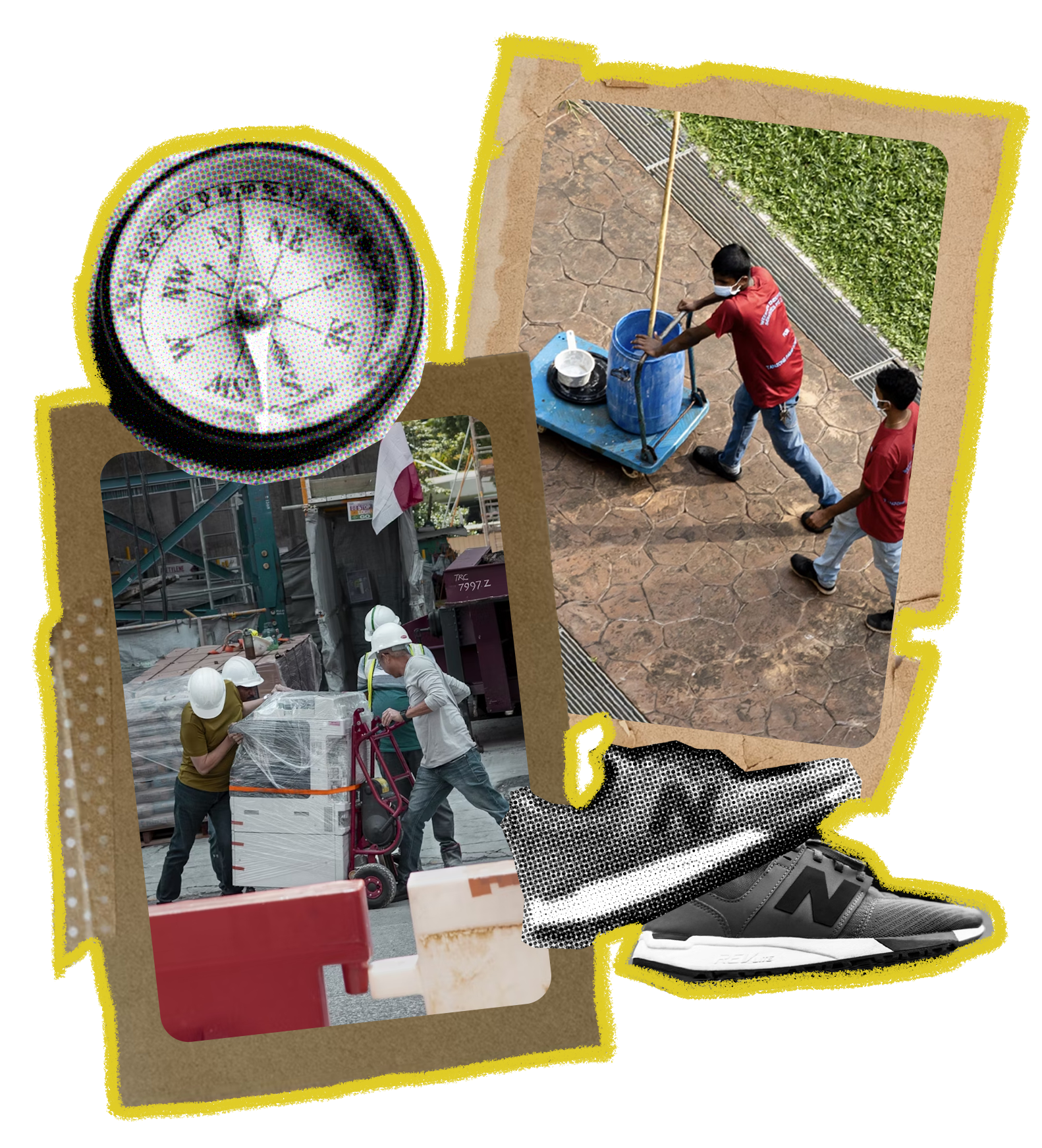Singapore Centre for Global Missions (SCGM) has just released the National Missions Study (NMS) report, a comprehensive analysis of Singapore’s missions landscape which offers valuable insights into its current state and future trajectory.
The study, conducted from June to October 2024, consisted of two primary components:
- A quantitative cross-sectional study that gathered data from churches via an online questionnaire
- A qualitative component involving focus group discussions
As a young adult who is greatly passionate about missions, I found the findings thought-provoking and timely. The report highlights key challenges and opportunities for mission workers, especially those from younger generations. I was there as they released the report, so let me share some key takeaways and actionable response steps.
The mission workforce is ageing
One of the most striking findings from the National Missions Study is the ageing profile of Singapore’s mission workforce. According to the report, only 4% of mission workers are under the age of 30, while 31% are over 60. This generational gap highlights the urgent need for younger individuals to step into the mission field.
… only 4% of mission workers are under the age of 30, while 31% are over 60.
While there is a growing number of bi-vocational workers and tentmakers under 50, traditional mission roles, such as church-based workers or those serving in Christian NGOs, remain largely filled by individuals aged 50 and above.
This challenge is compounded by a sharp decline in the number of mission workers per church member over the past five years, a trend influenced in part by the COVID-19 pandemic. Excluding megachurches, the ratio has dropped by nearly 50%, from one worker per 53 members in 2019 to one per 109 in 2024.

I spoke with Antioch21 strategic coordinator, Rev Ng Zhiwen who affirmed that the local missions landscape does have causes for concern.
“The findings from the National Missions Study 2024 help to confirm what many of us have been sensing for some time — that the number of missionaries being raised and sent to the least reached places of Asia and beyond has declined ever since the pandemic in 2019,” he said.
“From 2020 to 2022, many mission workers had to return from their field country. Mission trips were practically non-existent and many churches focused on managing their congregation instead.
“If this situation persists, we may not have a new generation of mission workers, and we will run out of stories to inspire the next generation.”
As a young adult who has also spoken with missionaries on the field, I recognise that this stage of life holds challenges for those seeking to commit to missions abroad. Indeed, many of us are in the midst of activities such as building our careers or starting families which can make the traditional mission path feel daunting.
However, the study also highlights an encouraging trend: mission roles are becoming more diverse. Currently, 28% of respondents identify as non-traditional workers, including bi-vocational missionaries, business entrepreneurs, non-residential workers, doorstep missionaries, tentmakers and seminary lecturers.
In particular, 56 out of 98 surveyed churches are engaged in “doorstep missions” which means reaching out to migrants living or working in Singapore.
There are more missions opportunities and approaches today
It’s good news that fewer people are seeing the mission field as something that only takes place in a distant land. Missions can begin in our communities, right where we are, with what we have in our hands.
The Bless the Migrant Workers (BMW) initiative in Singapore is a great example of this, reaching out to migrant workers through meals, thrift sales, health screenings, games and educational classes. Through these acts of service, BMW makes a tangible impact while sharing God’s love with the hope that the workers it ministers to will bring the Gospel to their families back home.

Mission efforts are also evolving to include innovative approaches such as entrepreneurship.
Business as Missions (BAM) is an organisation that utilises business as a powerful tool for missions, equipping Christian entrepreneurs to overcome the challenges of running a business while staying true to their faith and mission.
For young individuals passionate about entrepreneurship and who are driven to make a difference in the mission field, BAM provides valuable guidance, resources and mentorship to help them seamlessly integrate their faith into their work.
So, if you’re an aspiring entrepreneur who is looking to use your skills to create meaningful impact, you could consider connecting with organisations like BAM to explore what opportunities await.
It’s so important to consider how your skills and passions align with the diverse needs of the mission field today.
Whether through traditional roles, marketplace ministry or evangelism at home – there is a place for everyone to contribute. Churches should also inspire members to view their vocations as platforms for advancing God’s kingdom.
We have a great opportunity to reimagine missions in our time, making efforts to share the Gospel throughout the world more accessible and impactful for all.
Limited focus on Unreached People Groups
While churches here have made progress in reaching Unreached People Groups (UPGs) since the 2019 report, the latest findings indicate that there is still considerable room for growth.
An unreached or least-reached people group is defined as one where there is no indigenous community of believing Christians with sufficient numbers and resources to evangelise their own people without external assistance.
Among the 98 churches surveyed, 54% have at least one mission partnership targeting UPGs. However, only 34% of the 749 reported partnerships focus specifically on UPG ministries, and just 45% of mission workers are engaged with UPGs.
Globally, the Joshua Project reports that 41.8% of people groups remain unreached, a staggering statistic that highlights the immense need for focused mission efforts to the least-reached.
Figures like these tell us of the urgent need for more intentional and strategic efforts to reach communities with little or no Christian presence.
While the reported numbers are encouraging in some ways, Singapore churches should note the specific areas or communities that do not have a viable Christian presence.
For example, Thailand is considered a nation that is unreached because its national average of Christians is less than 2%. The majority of mission presence is in three provinces, namely Bangkok, Chiang Mai and Chiang Rai where there are more than 5% Christians, contrasting with many other provinces where there are only 0.1% Christians.

To address such gaps, churches and mission agencies should prioritise Unreached People Groups (UPGs) by adopting culturally sensitive approaches that resonate with local communities.
This involves dedicating time and resources to understanding each group’s unique dynamics and sharing the Gospel in culturally relevant ways.
Tools like the Joshua Project can also provide valuable insights into UPG demographics and their specific needs.
Statistics like this one also prompted me to reflect on how I am choosing mission locations.
I am convicted to give special consideration to areas in the world where the Word of God is most urgently needed; it’s easy to overlook these regions in favour of more well-known places that already receive significant support and attention.
One suitable response here might be to consider Short-Term Mission trips to areas with UPGs. We might also start by simply praying for these regions, seeking God’s guidance on how to best serve and reach them.
“Here am I. Send me!”
The National Missions Study (NMS) findings present challenges and opportunities to our generation.
The ageing mission workforce, the limited focus on UPGs and declining worker numbers are pressing concerns. However, they also highlight the vast potential for renewal and growth in the missions landscape of Singapore.
For the next generation, this is a call to rise up and reimagine missions, finding ways to use our gifts, creativity and faith to spread the Gospel far and wide.
What you’re learning and experiencing right now — whether in school, work or community — can become a powerful foundation for future mission work. By investing in your skills and passions today, you’re equipping yourself to make a lasting impact, whether through traditional missions, bi-vocational work or local evangelism. Every effort contributes to advancing God’s kingdom.
As Jesus said in Matthew 9:37-38, “The harvest is plentiful, but the workers are few. Ask the Lord of the harvest, therefore, to send out workers into his harvest field.”
Will we allow the Lord to work in our lives and heed the call of the Great Commission?
More opportunities
If you’re ready to begin your mission journey, consider exploring opportunities with mission organisations.
For instance, there’s Cru Singapore you might consider, where you can become part of a vibrant spiritual community that brings hope and transformation. There are also organisations like Overseas Mission Fellowship (OMF) to check out, which enable you to partner with fellow believers to make a difference in communities across the globe.
If you’re passionate about missions and seeking a community of like-minded individuals in Singapore, why not also check out Antioch Campus? Founded by four university students, this missions mobilisation programme has grown into a vibrant community for young people discerning their mission calling. Stay updated on their 2025 programmes through the Antioch21 Telegram channel.
Let us resonate with Isaiah’s words in Isaiah 6:8 by responding: “Here am I. Send me!” With trust in God’s guidance, let us step boldly into the harvest field, confident that He is with us until the very end of the age.









